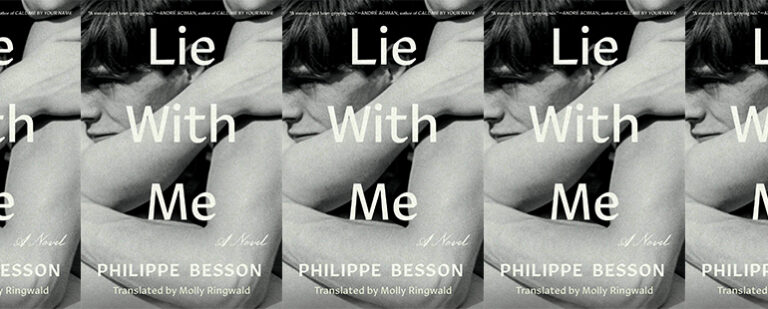Martín Espada on Colonialism and the Poetry of Rebellion in Puerto Rico
When I entered Poets House on May 31st for Martín Espada’s Home Page talk on Puerto Rican poetry, I carried with me a long-standing memory from Ernesto Quinoñez’s Bodega Dreams. Early in the novel from 2000, the narrator recalls his junior high school in Spanish Harlem:
The whole time I was at Julia de Burgos, I had no idea the school was named after Puerto Rico’s greatest poet, had no idea Julia de Burgos had emigrated to New York City and lived in poverty while she wrote beautiful verses. She lived in El Barrio and had died on the street. But we weren’t taught about her or any other Latin American poets, for that matter.
Later in the novel, when students question their English teacher as to why they always study Robert Frost and suggest instead that they study Julia de Burgos, their white English teacher Mr. Blessington responds:
‘Julia-day-Burgos is so obscure it would be hard to find a single poem of hers. In any language.’
To which the narrator retorts
‘But if she is so unknown…then… why did they name an entire school after her?’
The teacher goes on to explain:
‘The name they chose for this school was probably the worst name they could choose. Why, we teachers didn’t even know who she was when they renamed this place.’
Espada’s talk corrected the ignorance embodied in Quinoñez’s Blessington forcefully and directly by providing historical context and a healthy dose of Puerto Rican poets and poetry. In his early remarks Espada noted that
Puerto Rico is the oldest colony in the world: four centuries under Spain and more than a century under the United States. In five hundred years Puerto Rico has not determined its own destiny for five minutes….
The poets of Puerto Rico have often articulated the vision of independence, creating an alternative to the official history of the kind propagated by occupiers everywhere. They have been imprisoned for their words and ideas, despite the rhetoric of free expression favored by the United States.
Espada cited Burgos as “Puerto Rico’s most beloved poet, [who] gave voice to the rage and bewilderment” experienced in the 1930s, when the Puerto Rico’s economy collapsed along with the world sugar market and proposed a revolutionary solution:
Sharpen your hoe
whet your machete
and temper your soul.
Descend from the cliffs
and cross the fields drunk with cane.
Come close!
(…)
Look at the sugar mills:
There is your dead wife!
Contemplate the savage banquet of the machines
grip your hoe
and proceed
and say: “Til I return!”
Come close!
(trans. Jack Agüeros)
Espada continued to trace Puerto Rican history and the role of Puerto Rican poets to speak the truth of such events as the 1937 Ponce Massacre, reported in The New York Times as a nationalist “riot.” Burgos—paying homage to Bolivar Márquez, who, shot and dying in Ponce, wrote in his own blood on the sidewalk, Long Live the Republic! Down with the Assassins!—wrote:
Your blood is planted in a thousand living signs.
In addition to Burgos, Espada spoke of his mentor the surrealist Clemente Soto Vélez, after whom Espada and his wife named their son; Juan Antonio Corretjer, who was shipped to a federal prison in 1937 chained to Vélez as a result of their work for the nationalist movement; the Christian mystic Francisco Matos Paoli, who went mad while in solitary confinement for his role in the nationalist uprising of 1950; and Jack Agueros, a Puerto Rican born, like the narrator of Bodega Dreams, in East, or Spanish, Harlem, who writes in English. This from his “Sonnet After Columbus,” which Espada read in its entirety:
These men are more hellish than any hurricane,
And nothing good came after, government after government,
English, Dutch, Spanish, Yankee, twisting the tongue,
Jail some, buy some, scare some, dope some, kill plenty.
Do you know the names of the ones in jail or why?
Espada noted as well a new generation that continues this tradition and named Aracelis Girmay as “the most talented of these young poets.” From her poem “Then Sing”:
Let them tell you
You cannot sing in hell, good man.
Then sing.
Espada closed with lines from a poem by Burgos, wonderfully suited to his argument, but the image of the following, which preceded those lines, is what stay with me—
Words have wings. They fly, across time and space, across oceans and centuries. Sometimes they fly from the dead to the living. Some years ago in San Juan, I came across a festival organized by Claridad, the island’s socialist newspaper. Roy Brown, a singer and guitarist long associated with the cause of independence, was singing the words to a poem by Juan Antonio Corretjer, and thousands were singing along from memory, some in tears, verse after verse that somehow slipped through the keyhole in the jailhouse door and took wing.
After a Q&A session that focused on political poetry and its status in the United States, Puerto Rican history, Nuyorican poets, and distinguishing propaganda from poetry Espada was asked to close with his own poem, “Blessed Be the Truth-Tellers,” for Jack Agüeros:
Video of Espada reading “Blessed Be the Truth-Tellers”
Blessed Be The Truth-Tellers
For Jack Agüeros
In the projects of Brooklyn, everyone lied.
My mother used to say:
If somebody starts a fight,
just walk away.
Then somebody would smack
the back of my head
and dance around me in a circle, laughing.
When I was twelve, pus bubbled
on my tonsils, and everyone said:
After the operation, you can have
all the ice cream you want.
I bragged about the deal;
no longer would I chase the ice cream truck
down the street, panting at the bells
to catch Johnny the ice cream man,
who allegedly sold heroin the color of vanilla
from the same window.
Then Jack the Truth-Teller visited the projects,
Jack who herded real camels and sheep
through the snow of East Harlem every Three Kings’ Day,
Jack who wrote sonnets of the jail cell
and the racetrack and the boxing ring,
Jack who crossed his arms in a hunger strike
until the mayor hired more Puerto Ricans.
And Jack said:
You gonna get your tonsils out?
Ay bendito cuchifrito Puerto Rico.
That’s gonna hurt.
I was etherized,
then woke up on the ward
heaving black water onto white sheets.
A man poking through his hospital gown
leaned over me and sneered:
You think you got it tough? Look at this!
and showed me the cauliflower tumor
behind his ear. I heaved up black water again.
The ice cream burned.
Vanilla was a snowball spiked with bits of glass.
My throat was red as a tunnel on fire
after the head-on collision of two gasoline trucks.
This is how I learned to trust
the poets and shepherds of East Harlem.
Blessed be the Truth-Tellers,
for they shall have all the ice cream they want.


